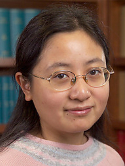Secondary cytoreductive surgery and oncologic outcomes in the era of targeted maintenance therapy for recurrent, platinum-sensitive ovarian cancer Journal Article
| Authors: | Ehmann, S.; Lam, C.; Zhou, Q.; Iasonos, A.; Grisham, R. N.; Tew, W. P.; O'Cearbhaill, R. E.; Long Roche, K.; Zivanovic, O.; Sonoda, Y.; Chi, D. S.; Gardner, G. J. |
| Article Title: | Secondary cytoreductive surgery and oncologic outcomes in the era of targeted maintenance therapy for recurrent, platinum-sensitive ovarian cancer |
| Abstract: | Objectives: To compare oncologic outcomes of secondary cytoreductive surgery (SCS) before and after FDA approval of Poly(ADP-ribose) polymerase inhibitor (PARPi) and bevacizumab maintenance therapies for platinum-sensitive recurrent ovarian cancer (PS-ROC). Methods: Patients who underwent SCS for first recurrence of PS-ROC from 1/1/2013–1/1/2020 were identified. Exclusion criteria included prior chemotherapy for recurrence, bowel obstruction procedures, and palliative surgery. Data were dichotomized pre/post 1/2017, relative to FDA approval of PARPi and bevacizumab maintenance for ROC. Second progression-free survival (PFS2), the primary endpoint, was estimated using Kaplan-Meier method. Results: Overall, 245 patients underwent SCS—131 (53%) pre- and 114 (47%) post-approval. Most patients had high-grade serous tumors (83% and 90%, respectively; p = 0.13). Deleterious BRCA1/2 alterations were identified in 27% (32/120) and 28% (32/113) of tested patients, respectively (p = 0.88). Disease-free intervals pre- and post-approval were: 6–12 months, 16% and 18%; 12–30 months, 56% and 59%; and >30 months, 28% and 24%, respectively (p = 0.73). Overall, 85% and 86% of patients, respectively, achieved complete gross resection (CGR; p > 0.99). PARPi maintenance use increased from 3.8% to 27% (p < 0.001) following approval, and bevacizumab from 1.5% to 12% (p < 0.001). Median PFS2 was 19 and 20.1 months, respectively. In the post group, 1-year PFS2 rate was 84.5% (95% CI, 75.7–90.4%) for patients with CGR vs 56.2% (95% CI, 29.5–76.2%) for those with residual disease; 3-year PFS2 rates were 31.3% (95% CI, 21.6–41.4%) and 12.5% (95% CI, 2.1–32.8%), respectively (p = 0.001). Conclusions: CGR during SCS is associated with improved PFS2 compared to suboptimal resection. Prospective randomized trials are warranted to elucidate the role of SCS as more therapeutics become available. © 2024 |
| Keywords: | adult; cancer survival; aged; major clinical study; bevacizumab; drug approval; nuclear magnetic resonance imaging; follow up; lymph node dissection; laparoscopic surgery; laparotomy; cytoreductive surgery; progression free survival; antineoplastic metal complex; computer assisted tomography; ovary cancer; maintenance therapy; food and drug administration; brca1 protein; brca2 protein; surgical approach; recurrent disease; disease free interval; nicotinamide adenine dinucleotide adenosine diphosphate ribosyltransferase inhibitor; targeted therapy; inguinal lymph node; secondary cytoreductive surgery; molecularly targeted therapy; clinical outcome; cancer prognosis; hyperthermic intraperitoneal chemotherapy; human; female; article; robot assisted surgery; platinum-sensitive recurrent ovarian cancer; poly (adp-ribose) polymerase inhibitor |
| Journal Title: | Gynecologic Oncology |
| Volume: | 186 |
| ISSN: | 10956859 |
| Publisher: | Elsevier B.V. |
| Date Published: | 2024-07-01 |
| Start Page: | 104 |
| End Page: | 109 |
| Language: | English |
| DOI: | 10.1016/j.ygyno.2024.03.006 |
| PUBMED: | 38640773 |
| PROVIDER: | scopus |
| DOI/URL: | |
| Notes: | The MSK Cancer Center Support Grant (P30 CA008748) is acknowledged in the PDF -- Corresponding author is MSK author: Ginger J. Gardner -- Source: Scopus |
Altmetric
Citation Impact
BMJ Impact Analytics
MSK Authors
Related MSK Work














